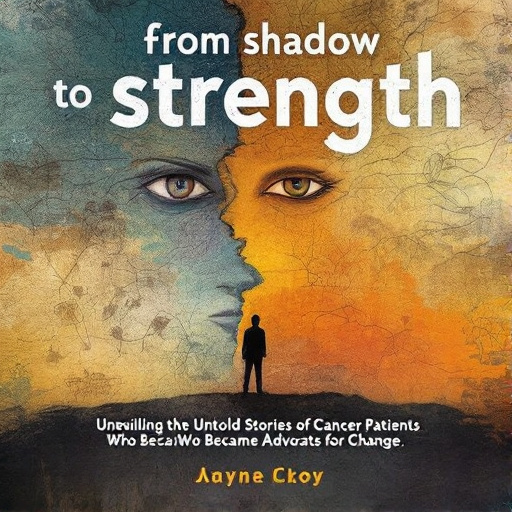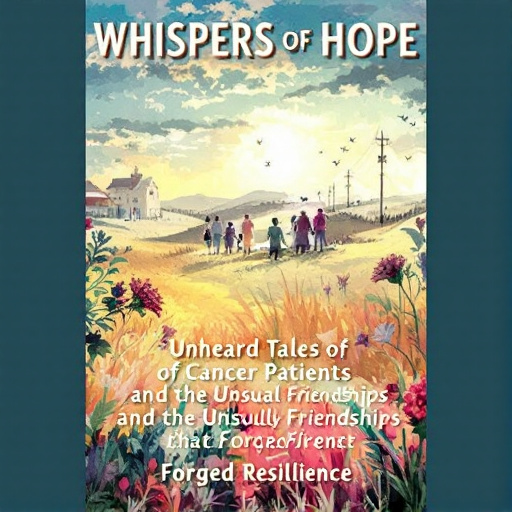Featured Articles
- 12 Pivotal Moments in Cancer Patients’ Lives That Shaped Unconventional Paths to Recovery
- Beyond the Diagnosis: The Unseen Impact of Cancer on Relationships and Social Dynamics
- Finding Light in the Shadows: Uncommon Spiritual Journeys of Cancer Survivors
- From Shadow to Strength: Unveiling the Untold Stories of Cancer Patients Who Became Advocates for Change
- Top 6 Wearable Tech Devices Revolutionizing Comfort and Support for Cancer Patients in Recent Years
12 Pivotal Moments in Cancer Patients’ Lives That Shaped Unconventional Paths to Recovery
12 Pivotal Moments in Cancer Patients’ Lives That Shaped Unconventional Paths to Recovery
12 Pivotal Moments in Cancer Patients’ Lives That Shaped Unconventional Paths to Recovery
1. Embracing Mind-Body Connection Through Meditation
Realization: Many cancer patients encounter a turning point when they discover the power of meditation in managing treatment side effects and stress. For instance, mindfulness meditation has been shown to reduce anxiety and improve quality of life during cancer therapy (Johns Hopkins Medicine, 2021).
Transformation: This awakening often leads patients to integrate meditation into their daily routines, moving beyond conventional treatments and adopting holistic practices that nurture both mind and body.
Outcome: Patients report enhanced emotional resilience and a greater sense of control over their illness, contributing to improved overall wellbeing and a more positive outlook on recovery.
2. Turning to Nutritional Overhaul as Medicine
Realization: A pivotal moment arises when patients learn the potential impact of nutrition on cancer progression and recovery. Studies have highlighted diets rich in fruits, vegetables, and whole grains in supporting immune function (American Cancer Society, 2020).
Transformation: Abandoning previous eating habits, patients may adopt tailored dietary plans that align with their specific cancer type and treatment regime, often consulting nutritionists as part of their care team.
Outcome: This nutritional shift empowers patients, boosting their energy levels and potentially enhancing treatment efficacy while feeling proactive in their healing journey.
3. Discovering the Power of Art Therapy
Realization: For some, an introduction to art therapy marks a profound change, offering a channel for emotional expression often stifled by the cancer experience. Research supports art therapy’s role in reducing psychological distress (National Cancer Institute, 2019).
Transformation: Patients engage in painting, music, or writing to process complex feelings, which might otherwise remain unaddressed during conventional treatment.
Outcome: The creative process can lead to catharsis and improved mental health, fostering hope and creativity as complementary forces alongside medical interventions.
4. Cultivating Support Networks Beyond Family
Realization: Many patients find a transformative moment when they build communities beyond immediate family, including support groups and online forums. Such connections offer validation and shared experience.
Transformation: Participation in these networks helps reduce isolation and provides access to resources and emotional support that might be missing from their usual support systems.
Outcome: Strengthened social bonds contribute to psychological wellbeing and create a sense of belonging that can motivate adherence to treatment and foster resilience.
5. Exploring Complementary and Alternative Medicine (CAM)
Realization: Faced with side effects or limited results of conventional treatments, some patients turn to CAM modalities such as acupuncture, yoga, or herbal remedies as supplemental therapies.
Transformation: Integration of these therapies often involves careful consideration and consultation with healthcare providers to ensure safety and maximize benefits.
Outcome: CAM can help alleviate symptoms like pain and nausea, improving overall comfort and enhancing patients' engagement in their recovery process (National Center for Complementary and Integrative Health, 2022).
6. Reframing the Cancer Diagnosis as Personal Growth
Realization: Some patients experience an epiphany by viewing cancer not just as an illness but as a catalyst for personal development and life reassessment.
Transformation: This shift in perspective encourages patients to pursue neglected passions, mend relationships, or re-prioritize life goals, often influencing their recovery outlook.
Outcome: The growth mindset nurtures psychological strength and purpose, factors linked to improved health outcomes and greater life satisfaction.
7. The Impact of Spirituality and Faith
Realization: For many, reconnecting with or discovering spirituality provides comfort and meaning amid uncertainty. Faith-based coping has been identified as a significant resource for many cancer survivors (Puchalski et al., 2014).
Transformation: Patients may engage in prayer, meditation, or community worship, drawing strength from spiritual beliefs that transcend physical suffering.
Outcome: Spiritual engagement frequently correlates with improved emotional wellbeing and lower levels of distress, supporting a holistic approach to healing.
8. Advocating for Personalized Medicine
Realization: A pivotal moment comes when patients discover the potential of personalized genomic testing to tailor treatments specifically to their cancer’s genetic profile.
Transformation: This insight leads to informed decision-making and collaboration with oncologists to pursue targeted therapies or clinical trials.
Outcome: Personalized medicine aims to improve treatment efficacy and reduce side effects, marking a hopeful frontier in cancer care (National Cancer Institute, 2023).
9. Engaging in Physical Activity Despite Challenges
Realization: Learning that gentle exercise during and after treatment can improve fatigue and mood often marks a turning point for patients.
Transformation: Many incorporate walking, yoga, or tailored fitness programs into daily life, guided by medical advice to safely enhance physical function.
Outcome: Exercise supports cardiovascular health and mental wellbeing, vital components of comprehensive cancer recovery.
10. Leveraging Technology and Digital Health
Realization: Access to digital tools, including symptom trackers, telemedicine, and virtual support groups, transforms how patients manage their care.
Transformation: Patients become more proactive and engaged, monitoring symptoms and communicating frequently with healthcare teams, even remotely.
Outcome: Enhanced access to information and care coordination improves treatment adherence and empowerment throughout the cancer journey.




